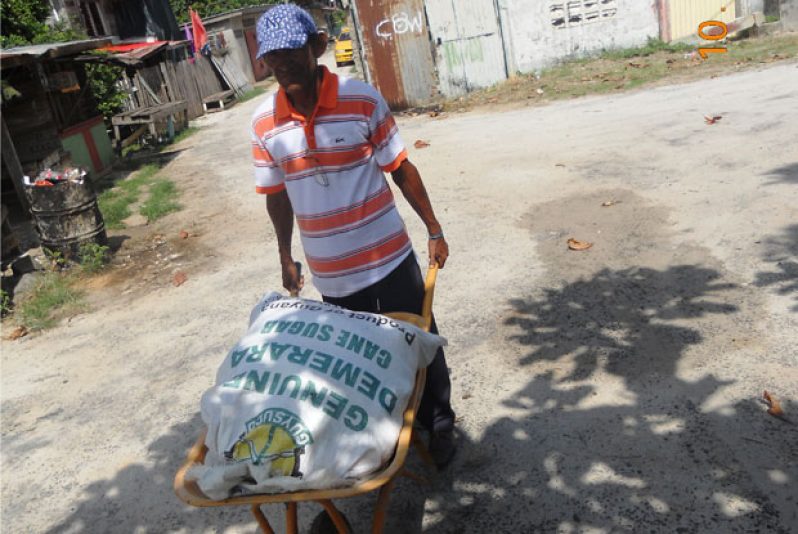EQUIPPED with line and bait, Orealla fisherman Mr. France, as he is commonly called, leaves home with his wooden boat and paddle in search of good fishing grounds; and he sells his catch to wholesalers at Crabwood Creek, Corentyne, and at Apura, an Amerindian reservation in Nickerie, Suriname.
This reporter caught up with Mr. France at the Corriverton wharf just as he was loading his catch, iced and packaged, onto a wheel-barrow for a trip “just around the corner”, which turned out to be over five hundred metres away.
His rapid gait left both this reporter and Mrs. France lagging behind, until he arrived at his destination at Number 79 Village, Corriverton, East Berbice, where he awaited the arrival of the purchaser.
In the interval, he timidly disclosed his modus operandi in acquiring a catch through line or cast-net fishing in the Corentyne River. During the dry weather, he said, he uses a line which he baits with various small fishes, like the ‘kassy’, ‘lomporo’ or ‘bump chest’, amongst other species. His catch also depends on the tide. “I start out with the ‘first washing’, as the tide rises, he said.
A spot is chosen, and when the line is thrown into the water, the fish begin ‘to bite’; “and whenever that happens, I remain there to fish until there is no more ‘biting’.
“When the tide has changed and water starts moving rapidly inwards, it’s time to stop fishing. During that period, I would return home to store the catch and have lunch, before returning when the tide starts to fall. Each period lasts for two to three hours.
Sometimes the catch is great, and he has to store the fish in freezers in which ice is packed in order to preserve the catch until he sells it on the coastland.
The Corentyne River is a great place to find the ‘grey basha’, which can be sold on the market for between $1000 and $2500, depending on size, he disclosed.
Mr. France travels to the coastland twice weekly, and is satisfied with the income he generates from his work.



.jpg)









